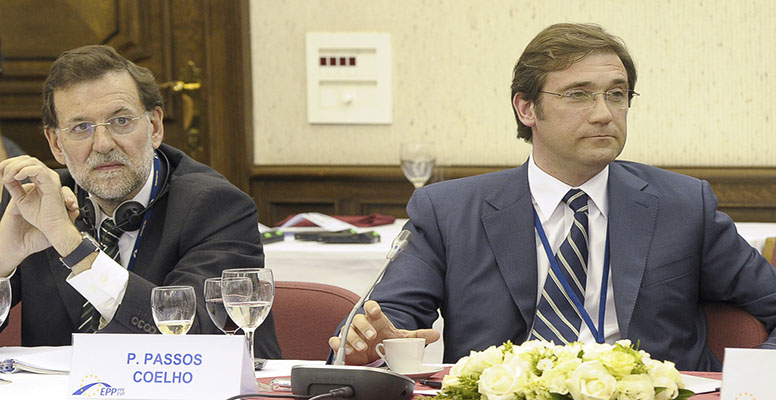Fernando Barciela | Passos Coelho won the elections in Portugal with 38.6% of the vote, but lost his majority in parliament. Even though he has been tasked with forming a new government, Portuguese left parties have adopted a pragmatic approach which makes an agreement between the Socialist Party, Communist Party and Bloco de Esquerda increasingly likely. For the time being, they have already appointed Eduardo Ferro Rodrigues, a socialist, as the President of the parliament.
When the centre-right Portuguese Prime Minister Pedro Passos Coelho won the country’s Oct 4 elections (without a majority), Spanish analysts viewed the result as proof of greater political stability in the neighbouring country. Everybody wondered how it was possible that a nation hit by a huge bailout could still have confidence in the same party that has had to manage such a difficult situation. In fact, so surprising were the results that Passos Coelho could become the first national leader in Europe to win re-election after overseeing a bailout.
One reason for that could be that the Portuguese were re-electing the man basically because they thought that a big chunk of the austerity adjustments were over and done with. Furthermore, the unemployment rate has dropped from 17.5 % in 2013 to 12% now.
But now the mood has changed, just because Portugal seems to have a greater problem than Spain. Although he won the elections with 38.6% of the vote, Passos Coelho lost his majority in parliament. So there is no possibility of him forming a majority government.
In response to this situation, the PS announced they would form a government. This is the second largest party with 32.3% and led by Antonio Costa. The problem is that Costa will have to do this through an anti-austerity coalition with the radical Left Bloc (BE) and the hardline Communists (PCP).
But for now, Portugal’s president Anibal Cavaco Silva has done the opposite and asked Mr Passos Coelho to be prime minister since he is the leader of the largest political party. Cavaco said that the financial, economic and social consequences of the alternative administration proposed by the left would be “much more serious.” At first glance, Coelho’s government could be very short-lived. It will be almost impossible for him to get enough suport for his four-year government programme. And this would risk undermining the country’s nascent economic recovery.
While all this is happening to the west of Iberia, things are getting easier in Spain. The latest polls now give the Partido Popular more possibilities in the December 20 general election than it had two months ago, boosting Prime Minister Mariano Rajoy’s chances of winning. This is partly because Spain’s growth rate is superb, while its unemployment rate has fallen to its lowest level in four years. At the peak of the crisis, unemployment was almost 27 percent.
But the key lies in the political map. While Passos Coelho has nobody to form an alliance with in Portugal, there is more of a likelihood of having a stable executive in Spain. In the past months, Podemos, a political threat according to most of the international media, has lost part of its strength. The political kingmaker in Spain will be Albert Rivera’s Ciudadanos, a very prudent and predictable party, with a mainstream agenda and a pro-business programme. So analysts think that Ciudadanos, in coalition with the PP or the Socialists, would represent a continuation of policy in Spain.
It’s not easy for the Portuguese PS to form a coalition with the Left Bloc and the communists. While this radical left party is pushing for a sort of fiscal expansion that would put a PS government on a collision course with the EU, Costa has promised to respect budget rules. But, at the same time, also calling for some relaxation of austerity measures. In fact, and this is a very positive sign, financial markets’ reaction to Portugal’s political confusion has so far been muted. Investors assume that budget consolidation under EU rules will continue, regardless of who is in power.





